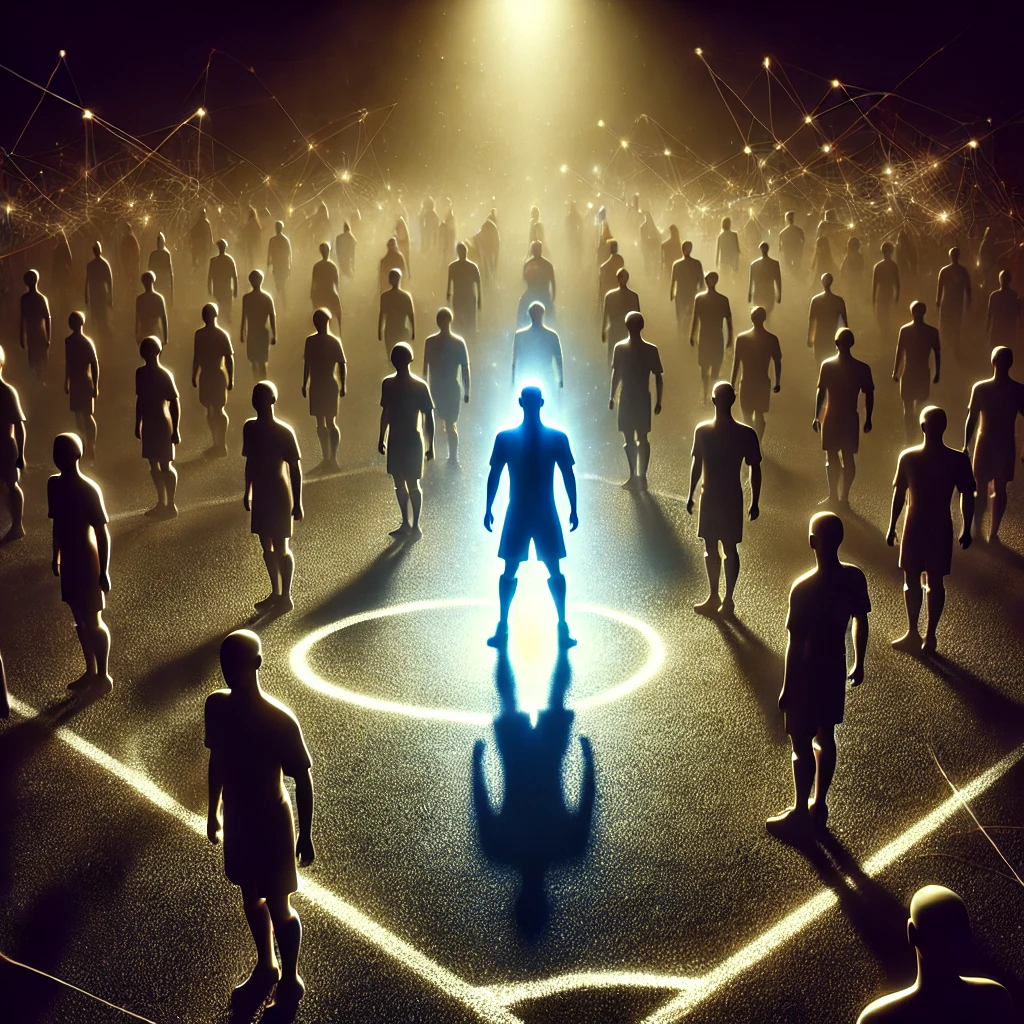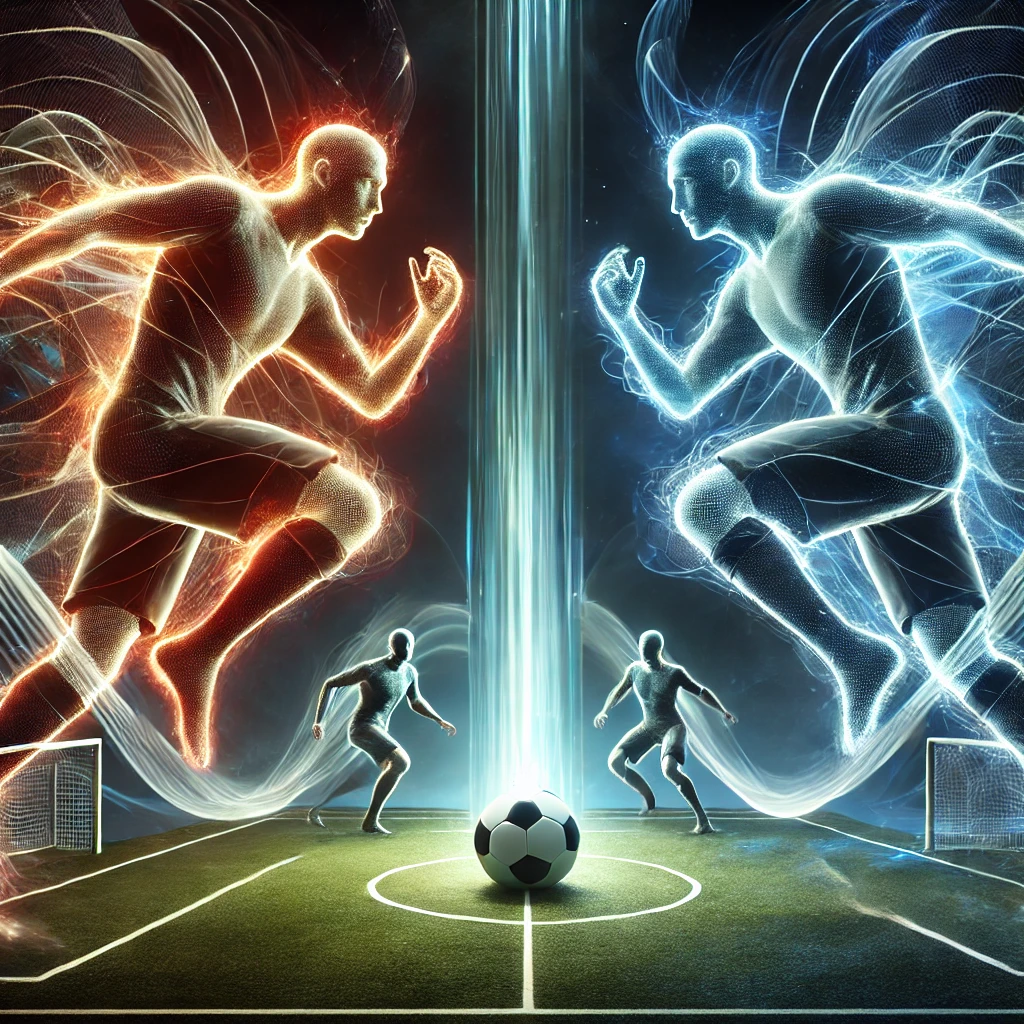Contents
Introduction: What is Blue Lock?

Have you ever wondered what it takes to create the ultimate soccer player? That’s exactly what Blue Lock is all about. It’s not just another soccer training program—it’s a high-stakes, adrenaline-filled competition designed to find and mold the best striker in the world. Sounds intense, right? Well, it is. Blue Lock throws tradition out the window and focuses on something rarely emphasized in team sports: individuality.
Unlike conventional soccer academies, where teamwork takes center stage, Blue Lock flips the script. The program dares to ask, “What if the key to victory isn’t teamwork but a player with an unshakable ego and unparalleled skill?” This revolutionary concept is the foundation of Blue Lock. It challenges players to dig deep, find their own strength, and stand out as the ultimate game-changer on the field. That’s why fans and players alike are drawn to it—it’s bold, unpredictable, and refreshingly different.
But how does it work? Participants are thrust into a cutthroat environment where they compete against each other in fierce battles of skill, strategy, and mental toughness. Only those who can outshine their peers make it to the next stage. Think of it as a survival game, but with soccer as the battleground. And while it’s tough, it’s also inspiring. Watching characters push past their limits and strive for greatness strikes a chord with anyone who loves the sport—or any challenge, for that matter.
Since its introduction, Blue Lock has captured the hearts of soccer enthusiasts worldwide. It’s not just an anime; it’s a movement. Fans praise its thrilling matches, relatable struggles, and the way it redefines what it means to be part of a team. Whether you’re a die-hard soccer fan or just someone looking for an exciting, motivational story, Blue Lock offers something special.
So, are you ready to dive into the world of Blue Lock? Trust us—it’s more than just a soccer program. It’s a game-changer.
The Concept Behind Blue Lock

What makes Blue Lock so unique? Let’s start with its philosophy: it’s all about reshaping how we think about soccer. Traditionally, soccer has always emphasized teamwork. Coaches drill into players the importance of passing, cooperation, and working as a unit. But Blue Lock challenges that idea entirely. Instead of prioritizing the team, this program puts the spotlight on the individual—the striker, to be precise. It’s an “ego-centric” approach, and while it might sound controversial, it’s also what makes Blue Lock so revolutionary.
Think about it. In real-world soccer, the best players—the ones we remember for years—aren’t just great team players. They’re game-changers. Lionel Messi, Cristiano Ronaldo, Erling Haaland—these are players who can single-handedly turn the tide of a match. Blue Lock takes this reality and builds its philosophy around it. The program believes that to create the ultimate striker, you need to foster a sense of ambition, confidence, and yes, even selfishness. After all, when the game is on the line, who’s going to take that winning shot? A player who hesitates or a striker who trusts their instincts and goes for it?
This ego-centric mindset is what drives Blue Lock. Participants are pushed to their limits, both physically and mentally. They’re forced to ask themselves tough questions: What makes me special? What can I do that no one else can? And most importantly, how can I dominate on the field? It’s not just about skill; it’s about building the kind of mindset that separates the great from the truly legendary.
But why is this kind of innovation necessary? In today’s soccer world, there’s no shortage of talented players. What’s missing, however, is individuality. Too many players are taught to blend in, to pass the ball rather than take the shot. Blue Lock recognizes that the future of soccer depends on players who aren’t afraid to stand out. It’s a lesson that resonates beyond sports, too. Whether you’re chasing a goal on the field or in life, sometimes you need to bet on yourself.
In the end, Blue Lock isn’t just about soccer. It’s about redefining what it means to be great. It challenges everything we thought we knew about the game and dares players to dream bigger. And honestly? That’s why it’s such a game-changer. So, what do you think—are you ready to embrace the Blue Lock mindset?
Key Features of the Blue Lock Program

So, what exactly makes Blue Lock stand out as a training program? Let’s break it down. At its core, Blue Lock is a relentless test of skill, strategy, and mental fortitude. This isn’t your typical soccer training camp where players casually run drills and scrimmage. No, Blue Lock pushes participants to their absolute limits. It’s a cutthroat environment where only the strongest, most determined individuals can survive.
The training structure is unlike anything you’ve ever seen. Imagine being thrown into intense one-on-one battles, high-pressure scenarios, and strategic challenges designed to expose your weaknesses. You’re not just competing against yourself—you’re up against hundreds of other players, all aiming for the same goal: to be the best striker. It’s survival of the fittest, both physically and mentally. Every mistake costs you, and every victory brings you closer to the top.
But it’s not just about the physical challenges. Blue Lock digs deep into the psychological side of competition. Players are constantly tested on their decision-making, confidence, and ability to handle pressure. The program forces participants to confront their fears and insecurities. Can you trust your instincts when the stakes are sky-high? Can you take the shot when it matters most? These are the kinds of questions that define Blue Lock.
One of the most memorable aspects of the program is the dynamic between the players. You’ve got rivals, allies, and sometimes even frenemies. The relationships are complex, and the emotional stakes are high. One minute, you’re cheering for someone’s success; the next, you’re battling them for survival. These character dynamics make every match, every confrontation, and every decision feel personal. It’s not just a game—it’s a fight for your dreams.
And let’s not forget the emotional rollercoaster. Watching the players push past their limits, confront their own egos, and grow stronger is nothing short of inspiring. You feel their highs and lows, their triumphs and defeats. It’s a story that resonates with anyone who’s ever chased a dream, no matter how impossible it seemed.
In the end, Blue Lock isn’t just about creating great soccer players—it’s about creating legends. The program’s brutal yet rewarding approach has captured the hearts of fans worldwide, making it more than just a fictional training ground. It’s a blueprint for greatness, and honestly? It’s hard not to be inspired by it. So, what do you think? Could you handle the pressure of Blue Lock?
Impact on Players and Fans

What kind of impact does Blue Lock have? Let’s start with the players. This program isn’t just about improving soccer skills—it’s about transforming mindsets. Players who go through Blue Lock come out as entirely different people. They’re not just better strikers; they’re more confident, focused, and resilient. The ego-centric philosophy of the program teaches them to trust their instincts and take responsibility for their actions, whether it’s seizing an opportunity or bouncing back from failure. These aren’t just soccer lessons—they’re life lessons.
One of the biggest changes players experience is their mental toughness. Blue Lock forces them to face their insecurities and overcome them. Take, for example, the iconic moments when players realize their true potential after intense battles. These breakthroughs aren’t just thrilling to watch; they’re inspiring. Fans often comment on how relatable these struggles are. After all, who hasn’t felt the pressure of living up to expectations or doubting their own abilities?
And it’s not just the players who are affected. Blue Lock has had a profound influence on soccer culture itself. It challenges the traditional emphasis on teamwork and instead celebrates individuality and ambition. This approach has inspired fans and players around the world to see competition in a new light. Suddenly, being “egoistic” isn’t a bad thing—it’s a strength. It’s about believing in yourself, even when the odds are stacked against you.
Fans of Blue Lock are some of the most passionate out there. Whether it’s through social media discussions or fan art, the community is constantly buzzing. Many fans say they’ve found motivation in their own lives from watching Blue Lock. Comments like “This series pushed me to pursue my goals” or “Blue Lock taught me to value my unique strengths” are incredibly common. The show doesn’t just entertain—it resonates deeply with its audience.
Critically, Blue Lock has also earned high praise for its innovative storytelling and intense matches. Reviews often highlight how the series redefines sports anime with its psychological depth and emotional stakes. It’s not just about winning or losing—it’s about the journey, the growth, and the fight to become the best.
In the end, Blue Lock isn’t just a program in the story—it’s a movement in the real world. It inspires players to aim higher, fans to dream bigger, and everyone in between to embrace the challenges in their lives. So, whether you’re on the field or off, Blue Lock proves one thing: greatness begins with believing in yourself. Are you ready to join the journey?
Why Blue Lock Stands Out in Soccer Anime and Beyond

What makes Blue Lock so different from other sports anime or even real-life soccer academies? Let’s talk about it. For starters, most sports anime focus heavily on teamwork, friendship, and overcoming challenges as a group. While those themes are heartwarming, Blue Lock takes a completely different approach. It shifts the spotlight to the individual, daring to ask: "What does it take to create the world's greatest striker?" That question alone sets it apart from anything else in the genre.
When compared to classics like Haikyuu!! or Kuroko no Basket, which celebrate camaraderie and collective effort, Blue Lock feels more raw and intense. It’s not about players building each other up; it’s about outlasting, outsmarting, and outplaying your rivals. The stakes feel incredibly real because only one player can achieve the ultimate goal. This competitive atmosphere resonates with viewers who understand the harsh realities of high-stakes sports—and life.
Now, let’s bring in real-world soccer academies. Programs like La Masia or the Ajax Youth Academy are renowned for their rigorous training and emphasis on developing well-rounded players. But even they don’t have the “do or die” element that Blue Lock introduces. The psychological and emotional intensity depicted in the series takes things to another level. Watching players navigate this high-pressure environment gives audiences a deeper appreciation for the sacrifices and grit required to succeed at the highest levels of soccer.
Another reason Blue Lock stands out is its storytelling. The series doesn’t just focus on the action on the field—it dives deep into the characters' psyches. You see their insecurities, ambitions, and transformations in a way that feels incredibly human. Whether it’s a moment of triumph or crushing defeat, the emotional stakes hit hard. This level of character depth makes it relatable for audiences of all ages. After all, who hasn’t faced moments where they had to prove their worth or fight for what they want?
And then there’s the art style. The dynamic visuals and intense match scenes keep you on the edge of your seat. Combined with its thought-provoking themes, Blue Lock creates a viewing experience that’s both thrilling and meaningful. It’s no wonder fans often say the series challenges them to rethink what success really means—not just in sports but in life.
So, why does Blue Lock stand out? Because it goes beyond being a typical sports story. It challenges norms, celebrates individuality, and inspires viewers to embrace their inner drive. Whether you’re a soccer fan or not, it’s impossible to watch Blue Lock and not feel fired up to chase your own goals. The only question is: are you ready to face the challenge?